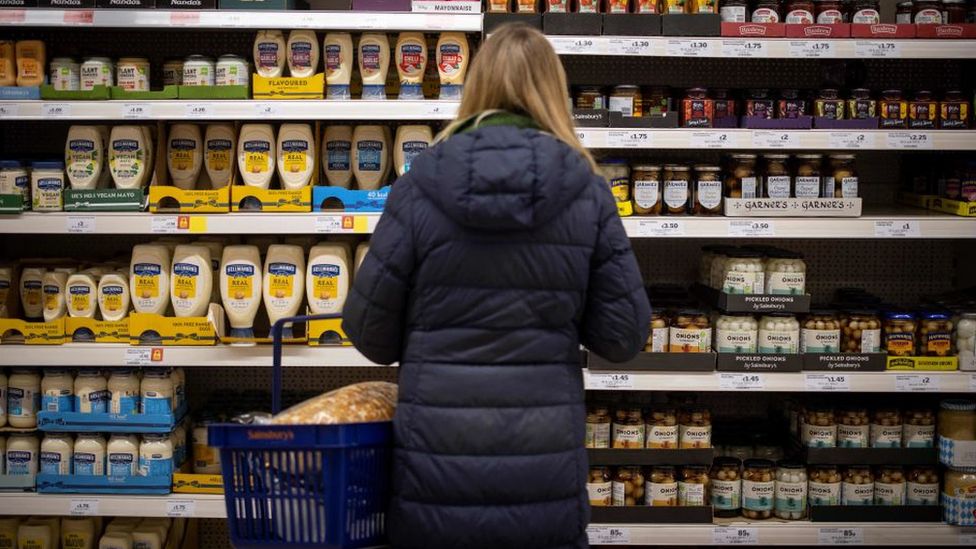
Grocery prices were 5.9% higher in April than a year ago, the biggest increase since December 2011, according to research company Kantar.
It said shoppers were turning to discount retailers Aldi and Lidl as pressures on budgets grows.
Supply chain issues, the Ukraine war and rising raw material costs are all contributing to soaring food prices.
Fraser McKevitt, head of retail and consumer insight at Kantar, said: “The average household will now be exposed to a potential extra £271 per year.
“A lot of this is going on non-discretionary, everyday essentials which will prove difficult to cut back on as budgets are squeezed. We’re seeing a clear flight to value as shoppers watch their pennies.”
Aldi was the fastest growing retailer during the period the data covers, with its sales increasing by 4.2% over the 12 weeks to 17 April.
This was closely followed by Lidl, which was up 4%.
More than one million extra shoppers visited the two retailers respectively over the period compared with this time last year, with both achieving record-breaking market shares, according to Kantar.
Tesco was the only other retailer to increase its market share, growing by 0.3 percentage points to 27.3% of total grocery sales.
Supermarkets are facing a fierce battle for customers as the soaring cost of living hits household budgets.
On Monday, Morrisons and Asda, who have both been losing customers to Aldi and Lidl, said they were cutting prices on hundreds of products.
Meanwhile Iceland boss Richard Walker told the BBC that the cost of living was the “single biggest domestic issue” facing the country, adding that he would offer a “constant drum beat” of deals to help shoppers cut costs.
Rising inflation
The latest inflation figures showed that UK prices are rising at their fastest rate for 30 years, with increased energy, fuel and food costs all contributing.
Firms are increasingly passing on the higher costs they are facing to customers.
On Tuesday, budget fashion chain Primark warned it would have to introduce “selective price increases” across some of its autumn and winter clothing ranges because of these higher costs.
Last month, retailer Next also said its prices for homeware items would jump 13% and its fashion prices will rise by 6.5% in the second half of this year.
Nestle, the maker of KitKats and Nesquik cereal, also increased prices by more than 5% in the first three months of the year because of rising costs.
Kantar said food prices were rising fastest in markets such as dog food, fresh lamb and savoury snacks, but were falling in spirits.
It said there was also evidence of some customers stocking up on certain products due to limited availability and increased prices linked to the war in Ukraine.
Last weekend some supermarkets introduced limits on how much cooking oil customers are able to buy, with supplies being hit by the war.
The majority of the UK’s sunflower oil comes from Ukraine and disruption to exports has led to some shortages and an increased demand for alternatives.
Kantar said the cooking oil market grew by 17% in April, with sunflower oil up 27% and vegetable oil up 40%.
Meanwhile, for the first time since the pandemic began supermarket sales are falling – by 0.6% compared with two years ago, Kantar said.
However, this compares with the start of the first national lockdown in the UK, when only essential shops like supermarkets were allowed to open.
Kantar said the easing of Covid restrictions, with many returning to the office, as well as restaurants and pubs, may also have had an impact.
Online grocery sales were also down by almost 15% compared with 2021.
“It is to be expected that sales are down compared with last year when restrictions were still in place,” Mr McKevitt said.
“While the number of trips we’re making to the supermarket has remained steady this year, people aren’t buying as much when in store and the average basket size has dropped by 4.5% to £22.39.”






